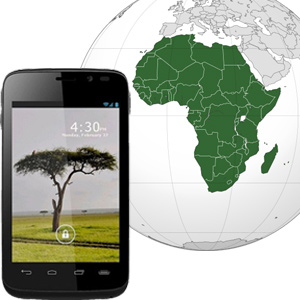 NEWS
NEWS
 NEWS
NEWS
 NEWS
NEWS
![]() There are currently around 1.4 billion smartphones in the use around the world. Several developed markets including the U.S. have already exceeded 50% penetration of smartphones among cellular devices. As the rate of new consumers entering the market slowing down, acquiring new users becomes increasingly difficult and expensive.
There are currently around 1.4 billion smartphones in the use around the world. Several developed markets including the U.S. have already exceeded 50% penetration of smartphones among cellular devices. As the rate of new consumers entering the market slowing down, acquiring new users becomes increasingly difficult and expensive.
Developers looking for rapid growth are not likely to hit a gold mine in market conditions where each user has a million applications to pick. On the other hand, developers are apprehensive about venturing into uncharted territories where risk is perceived to be greater than the reward. One such uncharted territory for app developers is Africa.
Africa is a continent technologically similar to an early-stage start-up. Not much to show for at the moment, but with huge growth potential. Continent-level data is hard to find, but for the purpose of this article, we can take a look at Nigeria, one of the more successful countries in Africa driving innovation in technology:
Nigerian growth of mobile ownership and mobile Internet usage exemplifies a broader trend in Africa. There is no technological heritage of traditional computing devices and many people get their first access to the internet through a mobile phone. Double and triple digit growth numbers for Nigeria are partly caused by a low base margin, but are additionally boosted by companies who have realized the potential in the mobile market here.
Device manufacturers were the first to see potential in Africa – many low-end devices have been created with Africa specifically in mind – including Huawei Ideos X1, Samsung Galaxy Pocket, Intel Yolo and Huawei 4Afrika. The common element for these phones is a low price of less than $150 USD. Selling Internet-capable smartphones at low prices has allowed smartphone penetration in Africa to grow at a huge rate. It also opens up new opportunities for app developers – not just to make revenue, but create meaningful impact.
With infrastructure and education lacking, building apps to solve issues in these areas could prove to be more profitable than selling TV subscriptions or virtual coins. Impactful and profitable examples of app innovation can be found from within Africa itself. Take iCow and mFarms–two services/apps created to aid farmers whose only access to the outside world is their mobile phone. The audience for these two apps in Nigeria alone could be 119 million people–that’s how many people are employed in agriculture in the country.
Another area with huge potential could be education – with remote schools having access to the outside world just through their phones and in some cases tablets, delivering education materials over the internet can prove to be a viable business case and adding value to the local society as well.
This does not mean there is no money in the entertainment and gaming business. Mxit and Eskimi are two social networks specifically built for the African market. Mxit has a user-base of 50 million in Africa, equalling Facebook. Eskimi reached break-even 3 months after monetization launch on the continent.
Looking at potential revenue, Africa is one of the lowest ARPU regions in the world for understandable reasons. However, as mobile devices are synonymous with the internet, people are used to paying on them as well. Mobile payments in Nigeria in 2012 reached $400 million USD compared to $539 million USD in the United States. To put things into perspective, the GDP of Nigeria is 29 times smaller than that of the US. This means people are already in the mindset of paying for things over their phone; the question then becomes how to provide them with something of real value?
One reason why iCow, mFarms, Mxit and Eskimi are successful is their adaption to the local context – they are available on both smartphones and feature phones, accessible from a web browser and through SMS messages. Western developers have the proven capability of creating great apps, but going beyond the borders of North America and Western Europe requires the adoption of a local mind set to become successful.
So where will your next billion users come from?
![]()
About the Author
Rain Rannu is the founder and CEO of Fortumo, the mobile payments company that powers in-app payments for Rovio, Facebook, Barnes & Noble NOOK, EA, Gameloft and more than 90,000 other developers.
THANK YOU